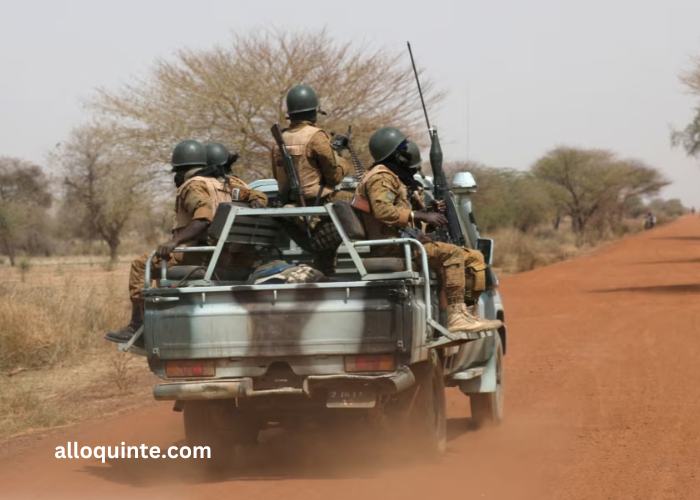The recent attack in Burkina Faso has once again drawn attention to the security challenges facing the region. In this article, we delve into the details of the attack, analyze its implications, and explore the broader context of insecurity in Burkina Faso.
Understanding the Attack
Details of the attack, including the location, target, and tactics employed by the assailants, are crucial for understanding its nature and impact. By examining eyewitness accounts, official statements, and media reports, we can piece together a comprehensive picture of the event and its aftermath.
Implications for Security
The attack in Burkina Faso today underscores the persistent threat posed by extremist groups and criminal networks in the region. It highlights the vulnerability of certain areas to violence and the challenges faced by security forces in maintaining order and protecting civilians. Moreover, the attack may have broader implications for regional stability and international efforts to combat terrorism and insecurity in the Sahel.
Root Causes of Insecurity
To fully grasp the dynamics of the attack, it’s essential to consider the underlying factors contributing to insecurity in Burkina Faso. These may include socio-economic grievances, political instability, ethnic tensions, and the proliferation of arms and illicit activities. By addressing these root causes, policymakers can work towards sustainable solutions to enhance security and stability in the country.
Response and Recovery Efforts
In the aftermath of the attack, swift and effective response measures are crucial for mitigating further harm and restoring confidence in the affected community. This may involve emergency medical assistance, evacuation of civilians, deployment of security forces, and investigation of the incident to identify perpetrators and prevent future attacks. Additionally, efforts should be made to provide support and assistance to victims and their families, including access to healthcare, counseling, and humanitarian aid.
International Cooperation and Support
Given the transnational nature of the security challenges in Burkina Faso, international cooperation and support are essential for addressing the root causes of insecurity and combating extremist groups and criminal networks. This may involve coordinated efforts among regional organizations, such as the Economic Community of West African States (ECOWAS) and the African Union (AU), as well as cooperation with external partners, including the United Nations (UN), European Union (EU), and individual donor countries.
The Attack: Unraveling the Details
On [insert date], Burkina Faso witnessed yet another tragic attack, this time in [insert location]. According to reports, [describe the nature of the attack, including the target, tactics used, and casualties]. Eyewitnesses recounted [provide firsthand accounts, if available], shedding light on the harrowing events that unfolded.
Implications for Security and Stability
The attack in Burkina Faso today underscores the persistent threat posed by extremist groups and criminal networks operating in the region. It raises concerns about the effectiveness of security measures and the vulnerability of civilians to violence. Moreover, the incident may exacerbate existing tensions and fuel further instability, both domestically and regionally.
Root Causes: Understanding the Context
To address the underlying issues driving insecurity in Burkina Faso, it’s crucial to examine the root causes of conflict and instability. These may include [list potential factors such as socio-economic disparities, political grievances, ethnic tensions, and the proliferation of arms and illicit activities]. By addressing these root causes, policymakers can work towards sustainable solutions that promote peace and security.
Conclusion
The attack in Burkina Faso today serves as a stark reminder of the ongoing security challenges facing the country and the broader Sahel region. By understanding the nature of the attack, its implications, and the underlying factors contributing to insecurity, we can better appreciate the complexities of the situation and work towards sustainable solutions. Through coordinated efforts at the local, regional, and international levels, we can strive to enhance security, promote stability, and safeguard the well-being of all citizens in Burkina Faso and beyond.




